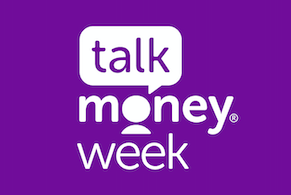
Every year, as autumn settles in, the UK marks a significant event that doesn’t just impact wallets but can also reshape lives—Talk Money Week. Organized by the Money and Pensions Service (MaPS), this awareness week encourages open conversations around finances, breaking through long-standing taboos that often leave many feeling isolated or stressed about money. Here’s why Talk Money Week is so important and how openly discussing finances can be a powerful tool for improving financial wellbeing.
What is Talk Money Week?
Talk Money Week is an annual event that shines a spotlight on the importance of discussing finances. The campaign, which usually takes place in early November, is an opportunity for people across the UK to come together and open up about a range of money matters—from saving and spending to debt management and retirement planning. The idea is simple but profound: by promoting financial conversations in workplaces, schools, and communities, we can help build a financially healthier society.
This week is part of the government-backed initiative to improve financial literacy and resilience, aiming to create a cultural shift where talking about money becomes as common as discussing one’s job or health. The hope is that by reducing the stigma around money, people will feel more empowered to address financial challenges, make informed choices, and seek help when needed.
Why is Talk Money Week So Important?
Money is often a sensitive subject, surrounded by shame, guilt, and anxiety. Research has shown that nearly half of adults feel uncomfortable talking about their finances, and a third struggle with money-related stress on a regular basis. This silence can make financial problems seem insurmountable, leaving individuals to suffer alone, whether they’re dealing with debt, worrying about savings, or uncertain about retirement.
The stigma around money can also impact mental health, family relationships, and job performance. Talk Money Week helps break down these barriers by creating an environment where financial conversations are encouraged and normalised. This cultural shift is essential for a society where financial challenges are increasingly complex—from soaring property prices and fluctuating energy bills to pension gaps and rising student debt. By addressing financial issues openly, we can foster resilience, promote financial education, and build a foundation for sound financial wellbeing across generations.
How Does Talking About Finances Help?
- Improved Financial Literacy
One of the main benefits of Talk Money Week is raising awareness about financial literacy. When people feel comfortable discussing money, they’re more likely to ask questions, seek advice, and explore resources that can help them make informed financial decisions. This awareness empowers individuals to understand budgeting, investing, and planning for the future, which can ultimately reduce financial mistakes and build confidence. - Reduced Financial Stress
Money worries are a significant source of stress, and they can take a toll on mental health and wellbeing. By sharing financial concerns with family, friends, or advisors, individuals can reduce the burden of isolation and benefit from collective problem-solving. Open conversations can also encourage people to take proactive steps, whether by seeking professional financial advice, creating a budget, or addressing debt more effectively. - Breaking Down Financial Stigma
Many people carry a sense of shame or embarrassment around money, especially when facing financial difficulties. Talk Money Week is about dispelling the myth that financial struggles are a personal failing. Just as physical health and mental health are now commonly discussed, money health should be a topic without shame. By talking openly about money, people can feel more at ease in seeking help, which is often the first step toward positive financial change. - Encouraging Better Financial Planning
Conversations around finances, especially with financial advisors or family members, can prompt individuals to think about their long-term financial goals. Setting realistic savings targets, planning for retirement, and considering investments can help people feel more in control of their financial futures. For example, families who talk about money are more likely to plan for major life events, such as buying a home, funding education, or supporting aging parents. - Strengthening Relationships and Community Support
Money can be a source of tension in relationships, but it doesn’t have to be. Open communication around finances can lead to stronger, more transparent partnerships. In the workplace, it can create an environment where employees feel supported in managing their financial wellbeing, which can improve job satisfaction and productivity. Communities that embrace financial openness are often better equipped to provide support and resources, contributing to collective financial wellbeing.
Making the Most of Talk Money Week
Talk Money Week is an excellent time to take action. Here are some simple ways to get involved:
- At Work: Employers can encourage financial wellbeing initiatives, such as workshops or financial literacy seminars, to help employees feel supported in managing their finances.
- With Family: Families can have open discussions about budgeting, saving, and planning for big expenses, fostering a culture of financial responsibility.
- In Schools: Educators can use this time to introduce basic financial education to students, setting them up for a more secure financial future.
- Individually: For individuals, it’s a great opportunity to reflect on personal finances, set goals, and seek advice if needed.
In Conclusion
Talk Money Week is more than just a campaign; it’s an invitation to start open conversations about a subject that affects everyone, yet is often discussed the least. By embracing the importance of speaking about money, we not only empower ourselves but also contribute to a more financially resilient and mentally healthy society. So, let’s break the silence, embrace the opportunity to learn, and support each other in building a financially secure future.